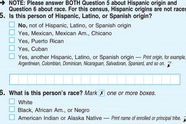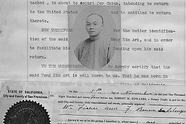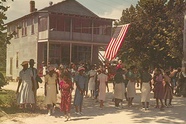The Roundup Top Ten for March 31, 2023

DeSantis's War on "Woke" Evokes Darkest Parts of Florida's Historyby Carol AndersonCalling DeSantis's agenda a "culture war" obscures the fact that is in fact a war against the marginalized, an effort to narrow the definition of who counts as a Floridian and whom the state will serve and protect, with the right to vote at the center. |

Trump's Choice of Waco is Waving the Bloody Shirt to the Far Rightby Nicole HemmerBy rallying in Waco at the 30th anniversary of the Branch Davidian siege and killings, Trump has signaled to the far right and the militia movement that he's their candidate. |

The Next Election Will Be a Fight over Our Memory of the Pandemicby Jacob Steere-Williams and Gavin YameyCandidates seeking to claim either party's nomination in 2024 are going to try to convince the public that their COVID policies protected both health and freedom. Before they win the votes, they have to win the battle of how Americans remember the pandemic. |

Should the Census Consider Latinos a "Race"?by Geraldo CadavaAlthough major Latino civil rights organizations have endorsed a proposal to combine two census questions and make "Hispanic or Latino" a racial category. Afro-Latino/a advocates say that this would make it impossible to evaluate internal divisions around skin color and ancestry. |

Why Everyone Born in the US is a Citizen, and Why it Mattersby Amanda FrostIn upholding birthright citizenship in the case of US v. Wong Kim Ark, the court invoked English common law, rather than claims to citizenship rights and freedom by escaped slaves, as the foundation of the 14th Amendment's definition of citizenship. This makes the principle vulnerable when it should be unassailable. |

The Dangerous Delusion of the Big Data Utopiaby Jill LeporeWhy has "data" supplanted metaphysical inquiry, empirical observation, and even standard statistical analysis as the go-to source for understanding the world? Is data science the latest episode in a history of technological utopianism? |

Have Protests Stopped Netanyahu's Attack on Israeli Democracy?by Bernard AvishaiIt's unlikely either Netanyahu will abandon his plans for overhauling Israel's Basic Laws to expand his power or that protests will cease in the near future. Israelis will increasingly have to choose whether the state will be a religious one with trappings of democracy or a democratic one with a nominal religious identity. |

Do Subtle Shifts in China's References to Divided Korea Signal Pragmatism on Taiwan?by Hu Ping and Perry LinkIn seeking to navigate Beijing's seeming intransigence on recognizing Taiwan, the United States can look to the PRC's subtle shift in rhetoric: it has stopped including divided Korea as a comparison to an unacceptable "two China" policy and categorized it as "one country, two governments," suggesting steps toward pragmatic acceptance. |

Gullah Geechee of Sea Islands Fight for their Post-Slavery Legacyby DeNeen L BrownThe Gullah Geechee people were chosen for enslavement in the Sea Islands because of their experience cultivating rice in Africa, and maintained a distinctive culture with strong African elements through slavery and emancipation. Development and gentrification threaten that legacy today. |

Chicago's Mayoral Race isn't Red v. Blue, but Conflicting Visions of What a City Should Beby Martha BayneSchools are the center of the Chicago mayoral election, specifically the question of whether the city will invest in them as community institutions or continue down a path of privatization started by candidate Paul Vallas in the 1990s when he ran the public schools. |